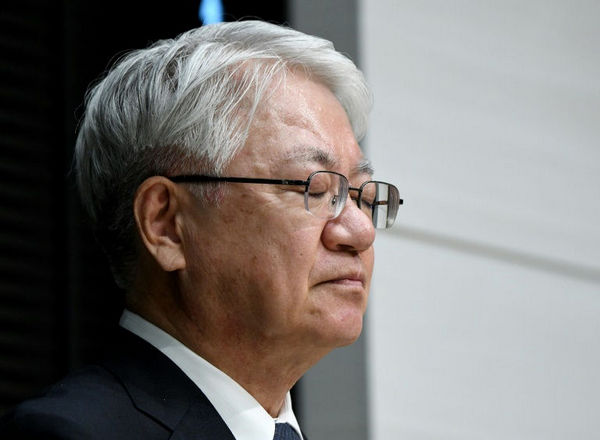
Kawasaki
“I’m very sorry,” said Kobe Steel’s CEO.
The head of scandal-hit Japanese steelmaker Kobe Steel announced his resignation on Tuesday after the firm submitted false strength and quality data for products shipped to hundreds of clients worldwide.
Hiroya Kawasaki’s resignation was a new blow to the reputation of Japan Inc after similar quality-control scandals hit industrial titans ranging from carmaker Nissan to Mitsubishi Materials.
Following a deep and prolonged bow in apology, Kawasaki told reporters: “As I think it’s best to go ahead quickly with reforms under new members, I … will step down from president on April 1 this year.”
“We have caused trouble to many people. As soon as we can, we would like as many people as possible to think that Kobe Steel has changed,” added Kawasaki, who had been in the job since 2013.
“I’m really sorry.”
The firm has not yet named a successor but pledged to hold a board meeting “in the near future” to select someone to turn the ship around.
‘Deep-seated issues’
A long-awaited report revealed that the scandal was more widespread that first thought, with 163 more clients affected than initially identified.
The document drew the veil on a web of falsification at various levels of the company, a venerable old firm that once employed Prime Minister Shinzo Abe.
“We take it very seriously the fact that the misconduct took place at many locations within the Kobe Steel group,” the report said.
The investigation found staff — including in some cases executives — changed inspection data, or made up data, before shipping their products.
Kobe Steel has “deep-seated issues” relating to its corporate culture and compliance, the report admitted.
“For over 112 years since its founding, the Kobe Steel group has managed its business by valuing the trust of its customers … The recent loss of such trust is truly regrettable,” added the report.
Disclaimer: The comments uploaded on this site do not necessarily represent or reflect the views of management and owner of Cebudailynews. We reserve the right to exclude comments that we deem to be inconsistent with our editorial standards.
